Education....
the most powerful tool
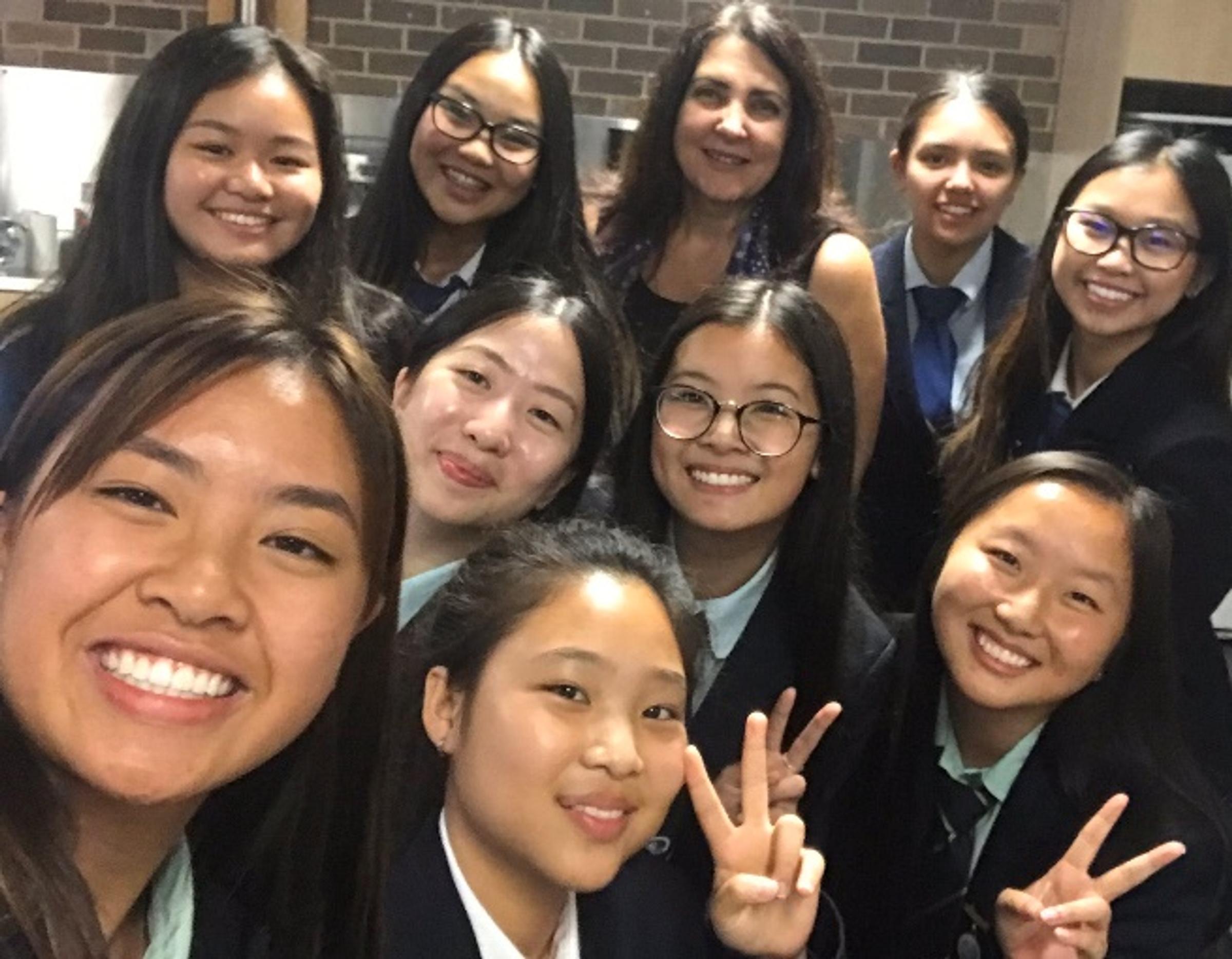
Education....
the most powerful tool
This term has been a great start for Year 9 as we have resumed more extra-curricular opportunities and activities. Year 9 students have attended excursions, participated in various sports and also have had the option to join after-school clubs and tutoring support.
Students will get the most out of their schooling by:
Year 9 has been getting used to how the Stage 5 curriculum works as they have been working towards the achievement of their ROSA credential. Below are the assessment task due dates for Term 2.
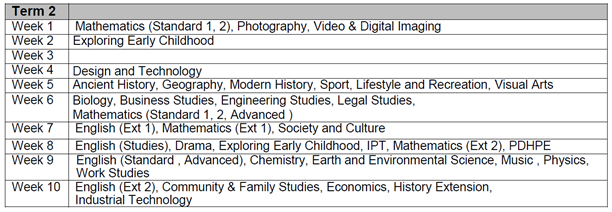

Next term, all students in Year 9 will participate in NAPLAN tests. NAPLAN assesses literacy and numeracy skills that students have already learnt through the school curriculum. NAPLAN tests give you as parents, information on how your child is progressing against national standards. This information can be used to identify areas in which your child may benefit from additional assistance. NAPLAN does not replace but rather complements assessments run by classroom teachers throughout the year.
Our Head Teacher Literacy, Mr Howard, and teachers will ensure that students are familiar with the test formats and will provide appropriate support and guidance. Excessive preparation is not useful and can lead to unnecessary anxiety. If you have any questions about your child's preparation for NAPLAN, please make a time to speak with Mr Howard. NAPLAN test days should be treated as just another routine event on the school calendar. The best way you can help your child prepare for NAPLAN is to reassure them that NAPLAN tests are just one part of their school program and to advise them to simply do the best they can on the day.
International Women’s Day
A few weeks ago, I was invited by our Director, Marianne Siokos, to attend the inaugural Cowpasture Network International Women’s Day Young Women's Forum for student and teacher leaders. I took Year 12 SRC leaders Jasmine Quach and Sophia Kouch with me and I was enlightened and filled with confidence in the future of young women with their insights and empowerment of each other. I have included some photos of the event below, as well as the work the group of nine student leaders from neighbouring high schools completed regarding their concerns, hopes and plans for the future.
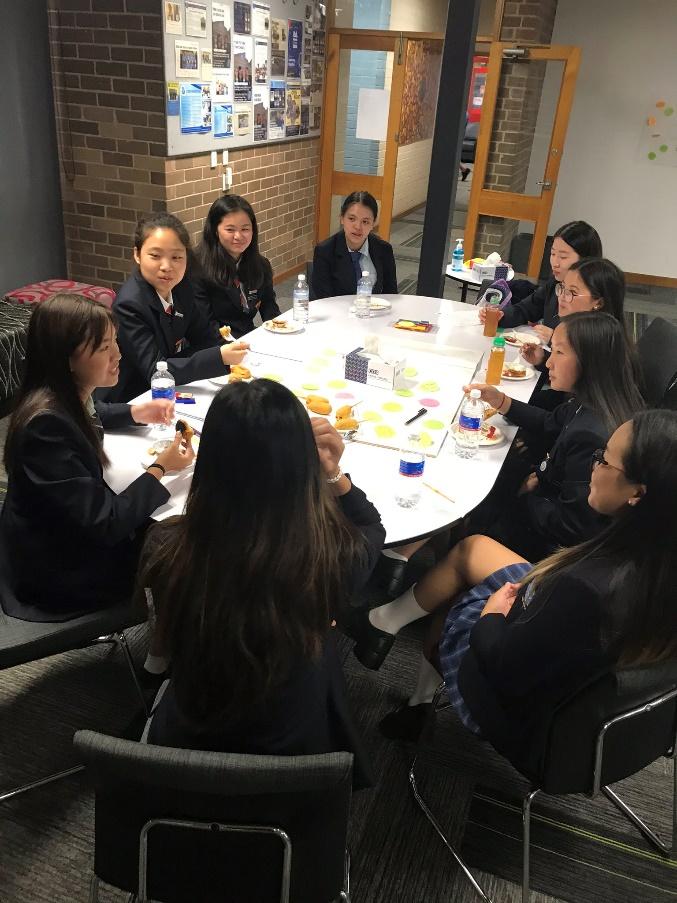
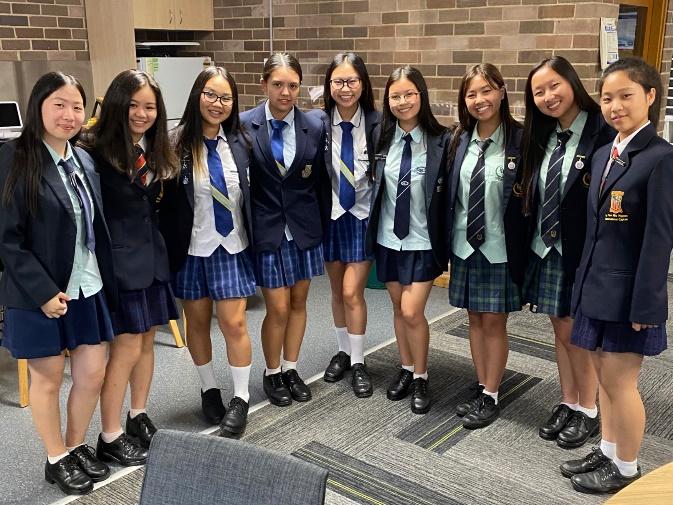
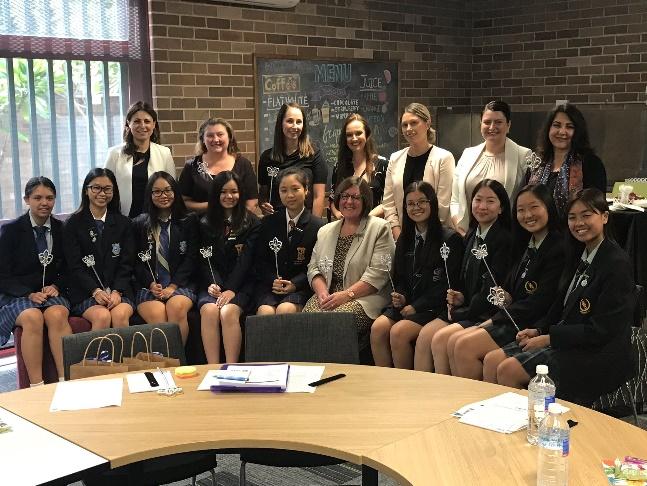



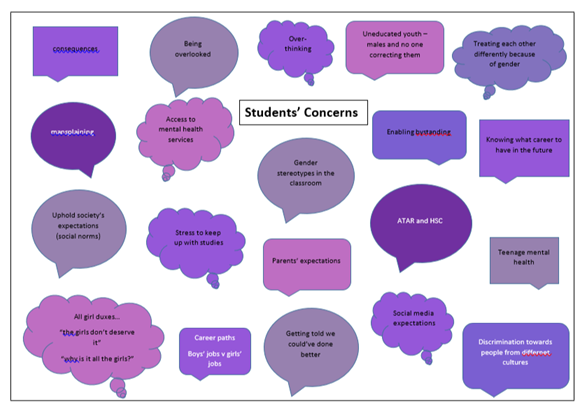
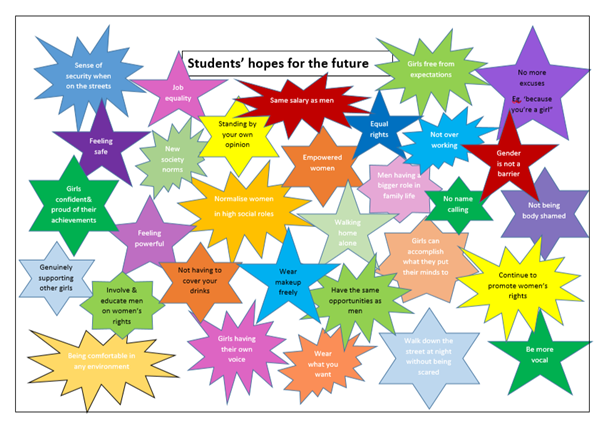
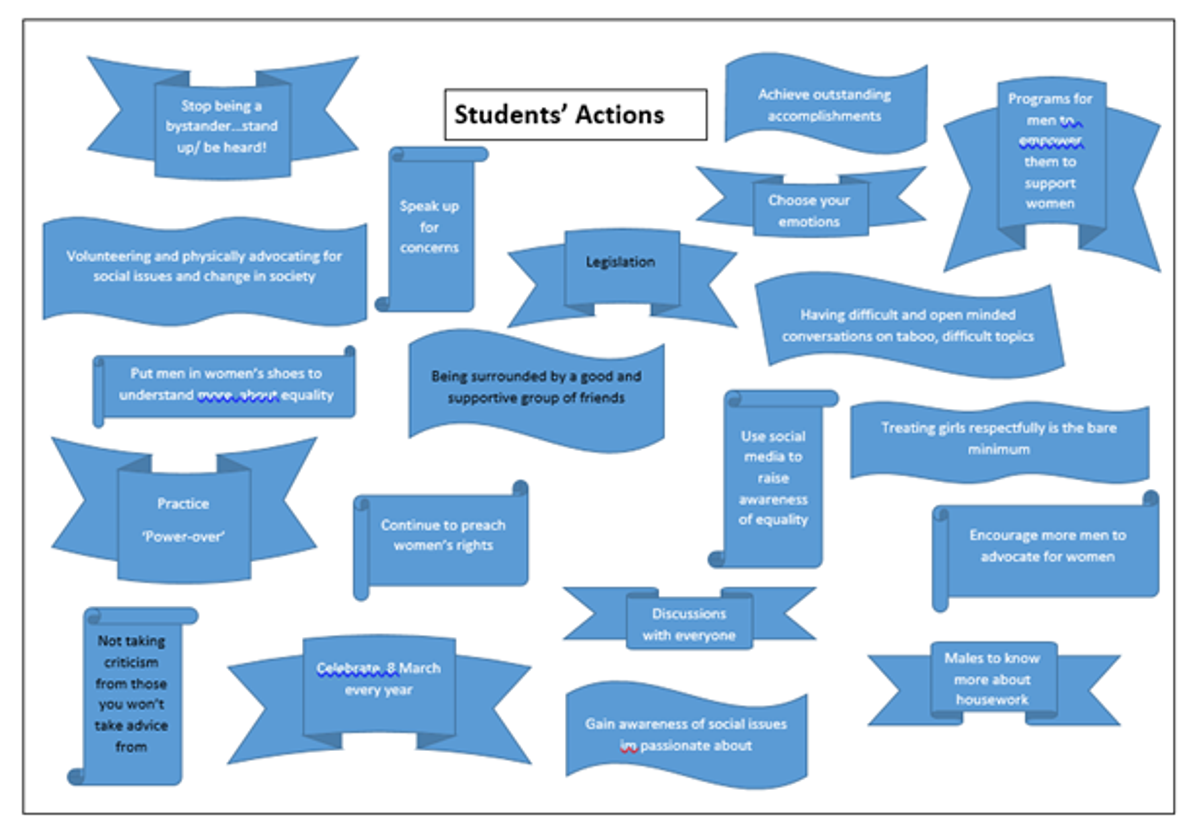



Assessments
Year 12 have had a very busy term and are now halfway through their HSC courses. I know that many students have found this to be a very stressful time, but I am proud at how well they have managed themselves. With two more terms of their HSC courses to go it is important that students pace themselves in an organised fashion so that they can sustain concentration and work quality.
I have included the calendar of assessment tasks due in term 2 below. This will be the final term of class assessments for most subjects. In term 3, the HSC Trial Examination period will take place during weeks 3 and 4. Many HSC major projects are also due in term 3 and all students studying courses that require projects should already have these well underway.


ALL students in Year 12 are at school to achieve a HSC.
It is this time of year that Year 12 students start thinking about the courses and universities they would like to apply for. Students apply online through the Universities Admissions Centre’s (UAC) website:
Applications for 2022 open at 9am on Thursday 1 April 2021. It is useful for both parents and students to follow UAC on social media or by subscribing to their newsletters. The following video will also assist students in how to apply for university:
Our Careers Adviser, Mary Reid, will also assist students though this process.
Last year, our retired Deputy Principal, Mr Flew, made a video on everything you need to know about the ATAR which you can watch here:
In summary, the Australian Tertiary Admission Rank (ATAR) is a number between 0 and 99.95. It provides a measure of a student’s overall academic achievement in Year 12 in relation to their age cohort, and it helps institutions rank applicants for selection. The ATAR is calculated by the universities and released by the Universities Admissions Centre (UAC). The ATAR is based on an aggregate of marks in 10 units of ATAR courses, which must include 2 units of English. It is important to remember that the ATAR is a rank, not a mark. A student’s ATAR depends not only on their position in the courses they study, but on the ability of other students in those courses, reflected in the courses’ means.
It’s a mistake to compare a student’s HSC marks and their ATAR, as they’re different measures indicating different things – performance and position.
Year 12 students are selected for university on the basis of their ATAR for most courses. However, some courses have additional selection criteria. If a portfolio or personal statement is required, it will be listed in that course’s entry in the UAC Guide or in the course description on UAC’s website. Each institution has its own policy for determining how the range of selection criteria is assessed. For further information, contact the institution/ university directly.
Dr Michael Carr-Gregg shares his top tips for students and parents to not only survive, but thrive during the final year of high school in his book “Surviving Year 12” which you can hear about at the following link:
He suggests the following top tips for Year 12 parents:


There are 168 hours in the week. Take away the time young people need for sleeping, eating and schooling and there are 60 hours left. It is during these 60 hours that parents can particularly help their children.
Remember, no child’s worth should be measured by three letters of the alphabet (HSC).
This will be my last newsletter as I finish my time at Cecil Hills High School this week and take on the Principal’s role at Bulli High School next term. This is an exciting opportunity and I feel confident as a school leader with all that I have learned from staff, students and parents at CHHS. Nelson Mandela said, “Education is the most powerful weapon which you can use to change the world.” It is this belief that drives me to continue to serve a new school community.
I started as Deputy Principal at the end of 2015 as the current Year 12 cohort were participating in their orientation to high school. This special group of students and I have learned together over the past five years about how to be successful at CHHS. Since their first day, I have always visualised shaking their hands at their 2021 Graduation and have kept this goal in mind through some of the more challenging times. Aristotle said that “Educating the mind without educating the heart is no education at all.” I have always tried to balance an equal measure of educational motivation with care and compassion so that students feel supported to take risks and try their very best. While I am disappointed that I will miss Year 12’s last two terms of schooling, I am confident that we have built a very strong foundation for this time in their educational lives. I have every faith in their ability to undertake their future assessments and HSC exams and encourage them to work together in this pursuit of success. Year 7 Deputy Principal, Mrs Julia Cremin, will be assisting Mrs Green and Mrs Norton and I know I am leaving Year 12 in very capable hands.
I firmly believe that education is one of the most powerful enablers in life as it gives us an understanding of the world around us and offers us an opportunity to use that knowledge to make our lives, and the lives of others, better. “Education is our passport to the future, for tomorrow belongs to the people who prepare for it today.” (Malcolm X)
I would like to publicly thank all of the office staff and teachers I have worked with over the past five years, particularly the Year Advisers, Head Teachers and Senior Executive team. Being a teacher is an absolute privilege, but being a leader of teachers is an honour. I am very proud to say that I worked at Cecil Hills High School.
I wish you and your families all the very best for the rest of 2021 and beyond and thank you for the support and kindness you have shown me over the years. It is this continued support from a school community that enables a school leadership team to provide quality education as you entrust your children with us.
“Education is for improving the lives of others and for leaving your community and world better than you found it.” (Marian Wright Edelman)
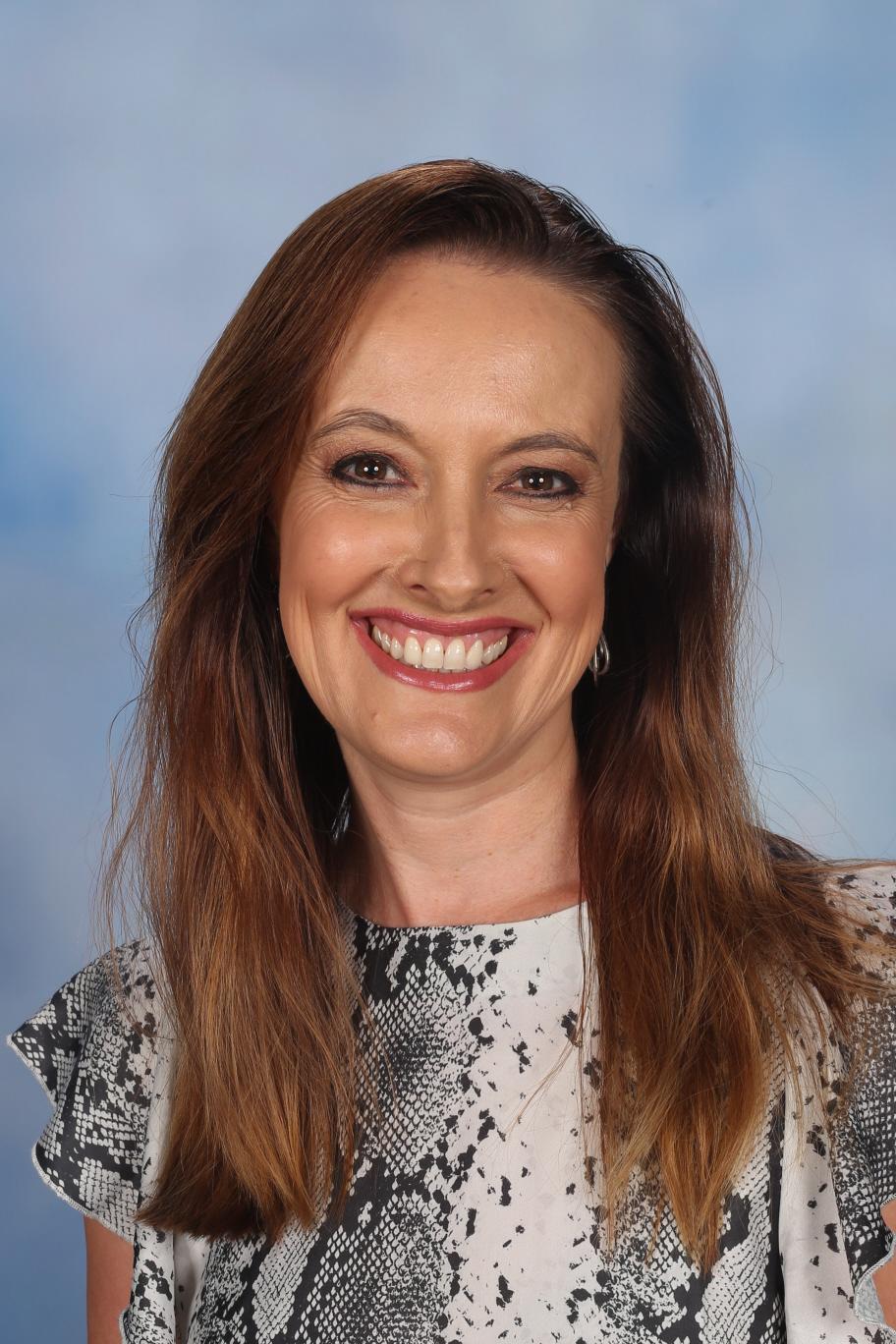

Mrs Denise James
Deputy Principal Years 9 and 12